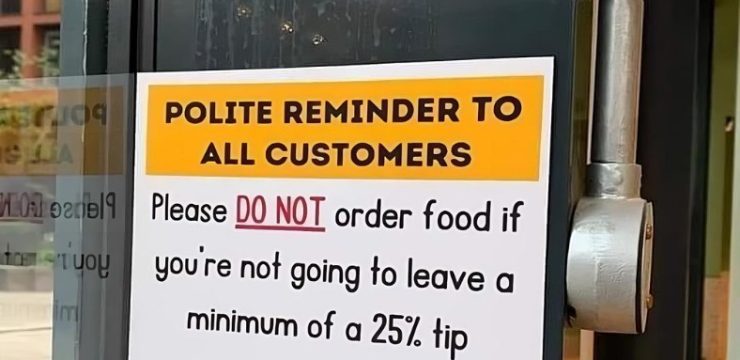Ash Putnam, a 23-year-old from California, recently took to TikTok to share her frustration after being turned down for a job at TJ Maxx. Her video quickly went viral, accumulating over 7 million views and tens of thousands of comments, as people across the platform weighed in on her experience and the role that tattoos might play in hiring decisions.

In her video, Putnam explained that she had applied for an entry-level position at TJ Maxx and received an automated rejection email a few weeks later.
“They couldn’t even call me. They just sent me some automated email,” she said, expressing her disappointment in the impersonal response.
Unsatisfied with this generic rejection, Putnam decided to go to the TJ Maxx store to get more details. “I went in today and was like, ‘So what was the reason why I didn’t get hired?’” she recounted. According to Putnam, she was told that the company had chosen candidates with more experience.
Since she knows many places can be particular about visible tattoos, she asked if her tattoos had influenced the decision. “I asked her if it was about my tattoos, obviously, because I know a lot of places don’t like tattoos. She said that wasn’t the reason, though I don’t feel like that’s true, but whatever—I’ll leave it at that.”
This experience left Putnam feeling disheartened. “Just because I have tattoos does not mean I won’t be a good employee. That makes no sense to me. Some of the most educated people I’ve ever met have tattoos and piercings,” she stated in the video.
While TJ Maxx didn’t provide a direct answer about whether her tattoos played a role in her rejection, viewers on TikTok chimed in with their own thoughts. Many seemed to agree that her tattoos were likely a factor, even if it wasn’t explicitly stated.
@ashxobrien I want to know who is also having a hard time finding a job right now! #jobs #jobmarket ♬ original sound – Ash🖤
“Tattooer here—it’s probably the tattoos,” one commenter said, while another wrote, “HR supervisor here. There’s no way any company would put you in front of customers like TJ Maxx with tattoos like that.”
One user, who claimed to be a former TJ Maxx employee, commented, “I worked at TJ Maxx, and they will hire just about anyone that comes off the street. It’s definitely the tattoos and piercings.”
Some viewers speculated that it might not just be the tattoos themselves, but where they’re located. “I don’t think it’s because you have tattoos… I think it’s WHERE you have tattoos 🤷🏾♂️,” read one comment.
In an interview with the Daily Star, Putnam admitted that she suspects her tattoos did play a part in her rejection. “I absolutely do think it’s about my tattoos because apparently my tattoos are demonic and scary to a lot of people,” she said. However, she noted that TJ Maxx never explicitly cited this as the reason, and her assumptions were based on the feedback she’d received online.
Comments on her TikTok have ranged from supportive to critical, with some users suggesting she find work in “a circus or a Halloween store” due to her tattoos. Putnam found such comments dismissive and offensive, but she maintained that tattoos shouldn’t determine employability.
Even if her body art did influence TJ Maxx’s hiring decision, Putnam believes that companies need to reconsider their views on visible tattoos and piercings. “People are being incredibly rude on my TikTok,” she shared, “but businesses need to realize that tattoos don’t impact a person’s abilities or work ethic.”
Putnam’s story has stirred a larger conversation on TikTok and beyond about the treatment of individuals with tattoos in professional settings. Tattoos, once widely considered “unprofessional,” have become a mainstream form of self-expression. Yet, many companies still view visible body art as incompatible with a polished brand image, particularly for customer-facing roles.
Some TikTok users shared their own experiences of workplace discrimination based on their tattoos or piercings, voicing frustration over how personal expression can impact job opportunities. “Tattoos don’t affect your work ethic,” one user commented. “I’m covered in tattoos and have been in customer service for years. It’s all about how you treat people.”
Others pointed out that certain companies have specific standards to maintain, and visible tattoos might clash with the brand image they aim to project. “Companies want to project a certain image, and tattoos don’t always fit,” said one user, suggesting that it might be less about personal bias and more about company policy.
The story highlights a generational shift in attitudes toward body art in the workplace. With younger people entering the workforce and bringing more diverse forms of self-expression, employers are being challenged to rethink traditional hiring criteria. However, Putnam’s experience illustrates that these changes are still evolving, and biases against visible tattoos remain prevalent.
Putnam hopes her experience with TJ Maxx will spark more open conversations about tattoos and workplace acceptance. “Businesses need to realize that tattoos don’t impact a person’s abilities or work ethic,” she said. “If anything, they’re just an expression of individuality.”
In a world where tattoos are an increasingly common form of self-expression, many argue that biases against them in professional settings are becoming outdated. Whether her tattoos played a direct role in the hiring decision or not, Putnam’s viral video has shone a light on the need to normalize body art in the workplace. Her story is a reminder that as workplaces evolve, their standards should also evolve—embracing diversity, self-expression, and individuality as strengths rather than limitations.





